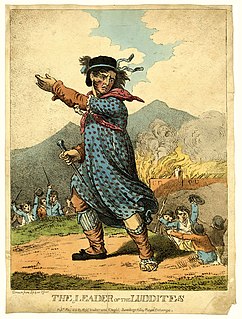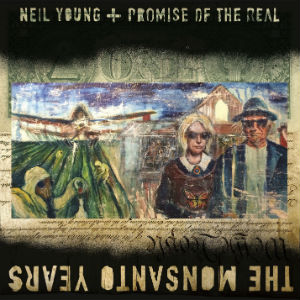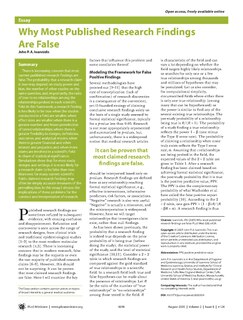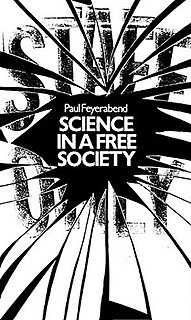 W
WCriticism of science addresses problems within science in order to improve science as a whole and its role in society. Criticisms come from philosophy, from social movements like feminism, and from within science itself.
 W
WIn telecommunications, 5G is the fifth generation technology standard for broadband cellular networks, which cellular phone companies began deploying worldwide in 2019, and is the planned successor to the 4G networks which provide connectivity to most current cellphones. 5G networks are predicted to have more than 1.7 billion subscribers worldwide by 2025, according to the GSM Association. Like its predecessors, 5G networks are cellular networks, in which the service area is divided into small geographical areas called cells. All 5G wireless devices in a cell are connected to the Internet and telephone network by radio waves through a local antenna in the cell. The main advantage of the new networks is that they will have greater bandwidth, giving higher download speeds, eventually up to 10 gigabits per second (Gbit/s). Due to the increased bandwidth, it is expected the networks will increasingly be used as general internet service providers for laptops and desktop computers, competing with existing ISPs such as cable internet, and also will make possible new applications in internet of things (IoT) and machine to machine areas. 4G cellphones are not able to use the new networks, which require 5G enabled wireless devices.
 W
WAgainst Method: Outline of an Anarchistic Theory of Knowledge is a 1975 book about the philosophy of science by Paul Feyerabend, in which the author argues that science is an anarchic enterprise, not a nomic (customary) one. In the context of this work, the term anarchy refers to epistemological anarchy.
 W
WBetrayers of the Truth: Fraud and Deceit in the Halls of Science is a book by William Broad and Nicholas Wade, published in 1982 by Simon & Schuster in New York, and subsequently (1983) also by Century Publishing in London, and with a simplified subtitle as Betrayers of the Truth: Fraud and Deceit in Science by Oxford University Press in 1985. The book is a critique of some widely held beliefs about the nature of science and the scientific process.
 W
WBig science is a term used by scientists and historians of science to describe a series of changes in science which occurred in industrial nations during and after World War II, as scientific progress increasingly came to rely on large-scale projects usually funded by national governments or groups of governments. Individual or small group efforts, or Small Science, are still relevant today as theoretical results by individual authors may have a significant impact, but very often the empirical verification requires experiments using constructions, such as the Large Hadron Collider, costing between $5 and $10 billion.
 W
WThe Engine is a fictional device described in the 1726 satirical novel Gulliver's Travels by Jonathan Swift. It is possibly the earliest known reference to a device in any way resembling a modern computer.
 W
WFarewell to Reason is a 1987 book of essays by philosopher Paul Feyerabend against the use of scientific rationalism.
 W
WPaul Karl Feyerabend was an Austrian-born philosopher of science best known for his work as a professor of philosophy at the University of California, Berkeley, where he worked for three decades (1958–1989). At various points in his life, he lived in England, the United States, New Zealand, Italy, Germany, and finally Switzerland. His major works include Against Method (1975), Science in a Free Society (1978) and Farewell to Reason (1987). Feyerabend became famous for his purportedly anarchistic view of science and his rejection of the existence of universal methodological rules. He was an influential figure in the sociology of scientific knowledge. Asteroid (22356) Feyerabend is named in his honour.
 W
W"Flatline" is a song by American rapper B.o.B, initially released on SoundCloud in January 2016. It is a diss track aimed at physicist Neil DeGrasse Tyson, whom he had gotten into an argument with on Twitter, over B.o.B's stated belief that the earth is flat. In addition to dissing Tyson and expressing belief in a flat earth, the song's lyrics also include other conspiracy theories, including Holocaust denial, "mirror lizards", and the belief that Freemasons are indoctrinating young people. The lyrics to the song refer to science as a cult.
 W
WInterrogating Ethnography: Why Evidence Matters is a 2017 book by Steven Lubet of Northwestern University Law School, critiquing methods used in the discipline of ethnography. Writing in Contexts, Syid Ali of Long Island University called it "an essential critique of the most public-facing product sociology has to offer."
 W
WThe Luddites were a secret oath-based organisation of English textile workers in the 19th century, a radical faction which destroyed textile machinery through protest. The group are believed to have taken their name from Ned Ludd, a weaver from Anstey, near Leicester. They protested against manufacturers who used machines in what they called "a fraudulent and deceitful manner" to get around standard labour practices. Luddites feared that the time spent learning the skills of their craft would go to waste, as machines would replace their role in the industry. Many Luddites were owners of workshops that had closed because factories could sell the same products for less. But when workshop owners set out to find a job at a factory, it was very hard to find one because producing things in factories required fewer workers than producing those same things in a workshop. This left many people unemployed and angry. Over time, the term has come to mean one opposed to industrialisation, automation, computerisation, or new technologies in general. The Luddite movement began in Nottingham in England and culminated in a region-wide rebellion that lasted from 1811 to 1816. Mill and factory owners took to shooting protesters and eventually the movement was suppressed with legal and military force.
 W
WThe Monsanto Years is a studio album by Canadian singer-songwriter Neil Young and the American rock group Promise of the Real, released on June 29, 2015 on Reprise Records. A concept album which criticizes the agribusiness company Monsanto, it is Young's thirty-fifth studio album and the third by Promise of the Real. The group is fronted by Willie Nelson's son Lukas, and the album also features Lukas' brother Micah.
 W
WThe Non-GMO Project is a 501(c)(3) non-profit organization focusing on genetically modified organisms. The organization began as an initiative of independent natural foods retailers in the U.S. and Canada, with the stated aim to label products produced in compliance with their Non-GMO Project Standard, which aims to prevent genetically modified foodstuffs from being present in retail food products. The organization is headquartered in Bellingham, Washington. The Non-GMO label began use in 2012 with Numi Organic Tea products.
 W
WObjections to evolution have been raised since evolutionary ideas came to prominence in the 19th century. When Charles Darwin published his 1859 book On the Origin of Species, his theory of evolution initially met opposition from scientists with different theories, but eventually came to receive overwhelming acceptance in the scientific community. The observation of evolutionary processes occurring has been uncontroversial among mainstream biologists since the 1940s.
 W
WThe replication crisis is an ongoing methodological crisis in which it has been found that many scientific studies are difficult or impossible to replicate or reproduce. The replication crisis most severely affects the social sciences and medicine, while survey data strongly indicates that all of the natural sciences are probably implicated as well. The phrase was coined in the early 2010s as part of a growing awareness of the problem. The replication crisis represents an important body of research in the field of metascience.
 W
WViktor Schauberger was an Austrian forest caretaker, naturalist, pseudoscientist, philosopher, inventor and biomimicry experimenter.
 W
WScience in a Free Society is a 1978 book by Paul Feyerabend that continues the argument of his 1975 Against Method and criticizes the primacy of science and the scientific method in free societies.
 W
WThe Secret Life of Plants (1973) is a book by Peter Tompkins and Christopher Bird. The book documents controversial experiments that claim to reveal unusual phenomena regarding plants such as plant sentience, discovered through experimentation. It goes on to discuss philosophies and progressive farming methods based on these findings. The book was heavily criticized by scientists for promoting pseudoscientific claims.
 W
WTime Cube was a personal web page, founded in 1997 by the self-proclaimed "wisest man on earth", Otis Eugene "Gene" Ray. It was a self-published outlet for Ray's theory of everything, also called "Time Cube," which polemically claims that all modern sciences are participating in a worldwide conspiracy to teach lies, by omitting his theory's alleged truth that each day actually consists of four days occurring simultaneously. Alongside these statements, Ray described himself as a "godlike being with superior intelligence who has absolute evidence and proof" for his views. Ray asserted repeatedly and variously that academia had not taken Time Cube seriously.
 W
WRoslyn Judith (Judy) Wilyman is an Australian anti-vaccination activist who came to prominence following the controversial award of a humanities PhD titled "A critical analysis of the Australian government's rationale for its vaccination policy" by University of Wollongong. The thesis came under heavy criticism from multiple directions, including medical professionals, due to claims within the thesis, including advancing a conspiracy theory whereby the World Health Organization (WHO) and the pharmaceutical industry supposedly conspire to promote vaccinations in the absence of evidence of safety and efficacy. The awarding of the degree created questions about the standards being applied and whether or not the thesis supervisors and examiners had sufficient knowledge to oversee the research, and led to calls for the university to review the doctorate. A number of individuals and medical organisations – including academics and researchers from other parts of the University of Wollongong – spoke out against the findings of the thesis, emphasising the need for vaccinations in order to prevent serious disease; and the University of Wollongong was criticised for a perceived lack of transparency in their doctoral process and an alleged failure to uphold standards of scholarship.